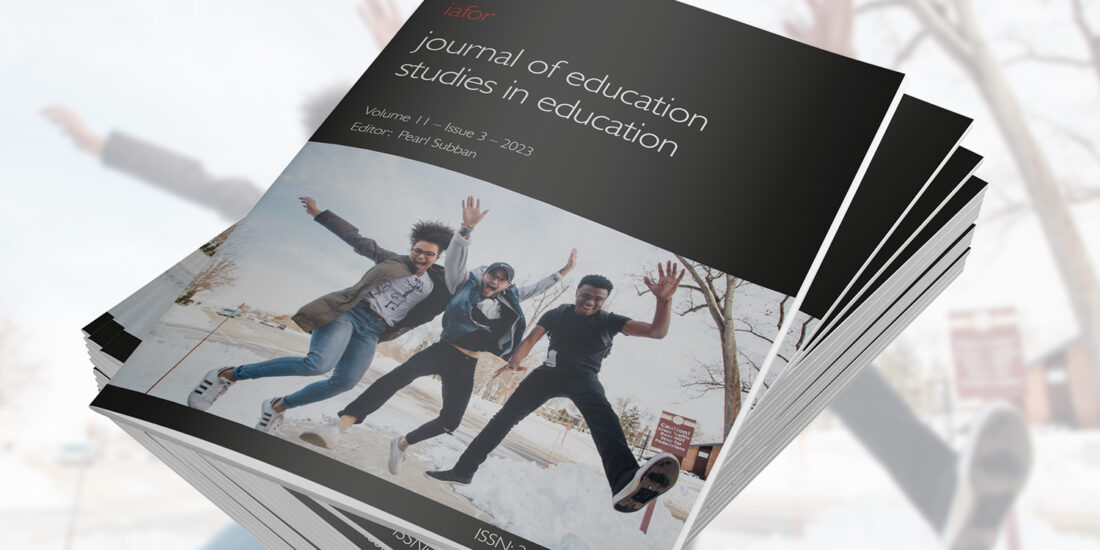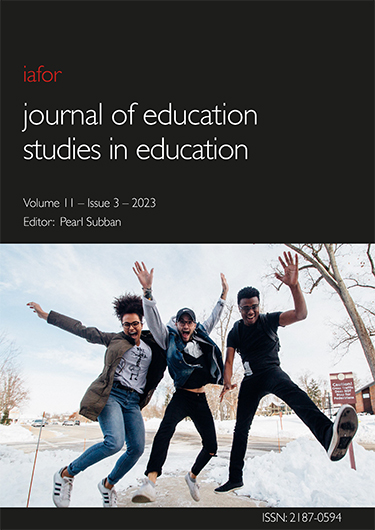Welcome to the Studies Education Issue
IAFOR Journal of Education: Volume 11 – Issue 2 – Studies in Education
Editor: Pearl Subban, Monash University, Australia
Published: December 8 2023
ISSN: 2187-0594
https://doi.org/10.22492/ije.11.3
Dear Readers,
In our rapidly evolving world, education plays a pivotal role in shaping the future. Its transformative power can either perpetuate inequalities or serve as a catalyst for social justice, equity and the celebration of diversity. The mission of this annual issue of the IAFOR Journal of Education, Studies in Education issue, is to explore the multifaceted aspects of social justice and diversity across the educational landscape. By fostering an inclusive and equitable educational environment, we have the potential to empower learners from all backgrounds and ensure that no one is left behind.
Nurturing Inclusive Education – A Call for Social Justice and Diversity
As the selected articles in this issue reveal, Inclusive Education is an essential foundation for achieving social justice and diversity in the classroom. The selection considers this essentiality drawing from scholarly pieces across the globe. Each contribution reinforces the view that all students, regardless of their background, abilities, or characteristics, should have equal access to quality education. The findings of each piece reiterate and acknowledge that diversity is not a challenge to be overcome but a strength to be embraced. It encompasses students of all races, genders, socioeconomic statuses, abilities, and cultural backgrounds. It is vital for educators to recognize that inclusion is not just an idea, but its active implementation involves providing the necessary support and accommodations for students to thrive in a genuinely accepting environment. Inclusive education requires curricular adaptations, professional development for educators, and fostering an open and accepting learning culture.
The selected articles span both school and higher education, reflecting on inclusive practices across learning areas, and in countries with clear policy, and in other countries with emerging policies on inclusion. In this regard, the articles also underline the view that to promote social justice, it is crucial to address the persistent educational disparities that have come to exist in contemporary education. Disparities in educational access, quality, and outcomes disproportionately affect marginalized communities, perpetuating cycles of poverty, alienation and inequity. This issue calls for research and advocacy to highlight these disparities and find innovative solutions to bridge the educational divide.
It is evident that educational leaders and policymakers must engage in transformative reforms that prioritize equitable resource allocation, culturally responsive teaching practices, and evidence-based interventions to narrow the gap. By eradicating these disparities, we create a more inclusive society where every student has the opportunity to reach their full potential. In the context of this issue, diversity encompasses more than just demographics; it includes a broad spectrum of cultural, linguistic, and social differences. In this issue, we explore the importance of cultural competence and sensitivity in education. To promote social justice, educators must not only acknowledge these differences but actively celebrate and integrate them into the curriculum. Cultural competence training and the inclusion of diverse perspectives in the learning materials can contribute to a richer educational experience for all students. This issue spotlights the significance of a global perspective on more equitable education, that takes cognisance of the range of intersections and diversity markers that shape learner profiles. Here, it is important that learning contexts create opportunities that equip students with the skill to navigate an increasingly interconnected world with empathy, open-mindedness, and respect for different worldviews.
Drawing from scholarly pieces across the globe
This issue serves as a clarion call for all educators, researchers, policymakers, and stakeholders to prioritize equitable educational opportunities. By promoting inclusive education, addressing educational disparities, and fostering cultural competence, we can create a more equitable and inclusive educational environment.
Dr Pearl Subban, Editor
Monash University, Melbourne, Australia
Email: [email protected]
Read the full issue
IAFOR Journal of Education: Volume 11 – Issue 3 – Studies in Education
Editor: Pearl Subban
Published: December 8, 2023
ISSN: 2187-0594
https://doi.org/10.22492/ije.11.3


